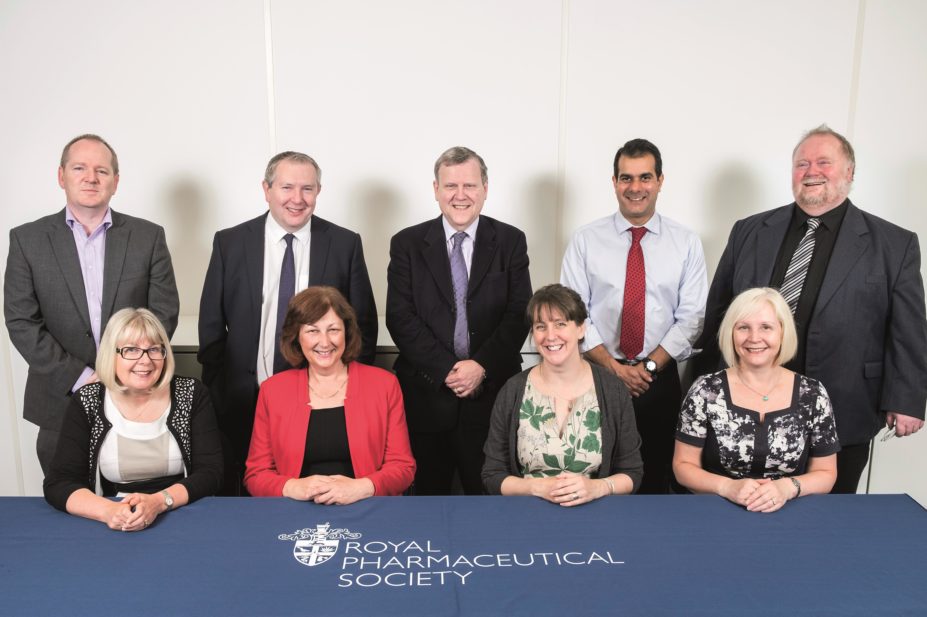
Nick Trenharne
The first Royal Pharmaceutical Society (RPS) Welsh Pharmacy Board (WPB) meeting of the year was held at the RPS Wales headquarters in Cardiff on 2 February 2017. The first item on the agenda was the RPS national pharmacy board elections, the process for which is due to start imminently. Four board members — Suzanne Scott-Thomas (chair), Paul Harris (vice chair), Richard Evans and Rob Davies — all come to the end of their terms in 2017.
The RPS will also be appointing a new lay member to the RPS Assembly. The board agreed that this serves as an opportunity to warm people up for the role and to find a lay representative whose view reaches beyond the pharmacy profession.
On other matters, the board approved a review of RPS governance, which resulted in an agreement to make amendments to the Society’s regulations – in particular to the processes by which the Assembly, board chairs and vice chairs and president are elected. Suzanne Scott-Thomas, chair of the WPB, informed the board that the agreed changes will come into effect from June or July 2017.
In an update from the Welsh directorate, Mair Davies, director for Wales, talked to the board about the various work streams of RPS Wales. These included the work stream for palliative care, which has now been extended to an 18-month plan, and the antimicrobial stewardship stream, which has been agreed as a Great Britain-wide programme for 2017.
Mair Davies and Scott-Thomas thanked the board for its involvement in the 6th RPS Wales Medicines Safety Conference, held in Cardiff in November 2016, saying that the event had set the foundation for future conferences, which need to keep improving each year.
Elen Jones, practice and policy lead at RPS Wales, updated the board on recent consultations that RPS Wales has contributed to, including the Health, Social Care and Sport Committee inquiry into medical recruitment, which sought views on the capacity of the medical workforce to meet future population needs in the context of changes such as Brexit.
The RPS has also been writing responses to a number of General Pharmaceutical Council (GPhC) consultations, including on the discussion paper on supervising independent prescribers in training and the consultation on religion, personal values and beliefs in pharmacy practice. According to Jones, the GPhC is keen for people to respond individually, particularly to the independent prescribing consultation, as it will make the process more straightforward.
Jones also discussed RPS Wales’s position on the Task and Finish group for the Welsh government’s draft dementia strategy, and its work with the Alzheimer’s Society and allied health professionals, many of whom have adopted the RPS position on the use of antipsychotics.
Ross Gregory, head of external relations at RPS Wales, provided an update on public affairs to the board. He said that meetings have been held with new members of the Health Committee and new assembly members to outline RPS manifesto messages, particularly in terms of long-term conditions. Further to this, meetings with the Welsh Ambulance Service Trust have led to a potential role for the RPS in supporting paramedic training.
Mair Davies informed the board that following recent meetings with asssembly members and subsequent discussion assembly members appear keen for the RPS to arrange visits to hospitals and areas of primary care. Board members suggested that the RPS should ensure these visits encompass the entire patient journey.
Gregory highlighted that RPS Wales has been supporting RPS work in Scotland and England and hopes to replicate some of the work being carried out in those countries, such as the parliamentary event on personalised medicines in Scotland.
Jodie Williamson, membership development and communications manager at RPS Wales, discussed one of the RPS’s key priorities for 2017: member engagement. The board discussed the need for better use of technology and for local coordinators from the board to be appointed to specific Welsh regions, perhaps where there is already a local practice forum (LPF) operating. It was agreed by the board that local engagement events need to be quality assured and align with the strategic goals of the RPS, such as those relating to the Faculty, Foundation and pre-foundation programmes.
Rob Davies, member of the WPB, said that the new local engagement model needs to be a hybrid of old and new so as not to undermine the expertise of current LPF leads. Scott-Thomas agreed, highlighting that a review is needed as part of the process.
Jayne Lawrence, chief scientist at the RPS, teleconferenced into the meeting to give an update on work to compile a ‘living’ database of the latest evidence for over-the-counter (OTC) medicines. By including scientifically and clinically relevant evidence, the database would support RPS members in their practice. Lawrence and Colin Cable, assistant chief scientist, are carrying out a scoping exercise to identify all the information required to form the database, starting with the evidence around OTC cough medicines. Lawrence highlighted that it would take a lot of work to cover all OTC medicines and asked for the board to consider whether it was worth doing. Lawrence said it would be a big and useful piece of work and one that pharmacy colleagues and students could assist with in future should it become a long-term project.
Finally, the WPB celebrated two more board members — Fiona Jones and Rob Davies — who received their RPS Faculty pins.
Out of 12 board members within the WPB, 6 have submitted their Faculty portfolios and the remainder have begun the Faculty process.

